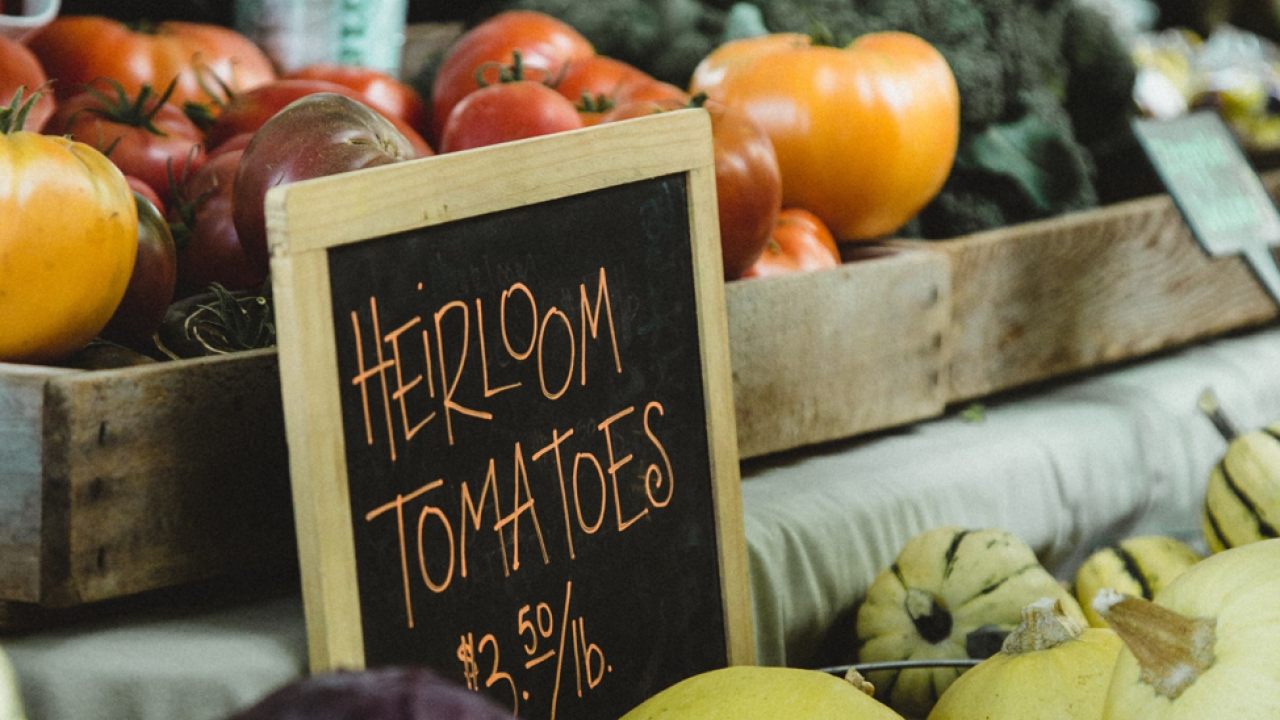
Keep Things Fresh with Long-lasting Produce
Looking to make less frequent trips to the grocery store? Even if you and your family are not shopping as often, it doesn’t mean that you have to sacrifice eating fresh produce. Take advantage of long-lasting produce to find creative approaches to making your weekly dishes. In addition to frozen and canned, fresh produce can help you and your family incorporate more fruits and vegetables into your meals and play a key component to a healthy diet. Remember, all forms of fruits and vegetables count towards your daily recommendation!
To spark creativity and inspiration for your next meal and snack, read below for examples of fresh produce items that can last from 2 weeks and up to 3 months with the proper storage:
Whole Fruits
- Apples: Refrigerate apples in a plastic bag up to 3 weeks for a crisp taste.
- Apples are a great year-round fruit to incorporate into family snacks and meals and come in an assortment of flavor profiles, like sweet Fuji apples, tart Gala apples, juicy Honey Crisp apples, and sour Granny Smith apples. Apples are also a good source of fiber.
- Citrus (such as, lemons, limes, and oranges): Refrigerate lemons and limes up to 3 weeks, and oranges up to 2 weeks for a juicy, sweet treat.
- Add some zest into your family meals and snacks with an array of citrus fruit like, lemons, limes, and oranges. Try new orange varieties, like Cara Cara, Blood, Jaffa, Pineapple, and Valencia oranges, for a mini taste-test at home or a weekly special snack. Citrus fruits are high in vitamin C, with oranges also being a good source of fiber.
- Tomatillos: Refrigerate tomatillos in a paper bag up to 1 month for their signature tartness and tang flavors.
- Stir up your weekly meals with roasted, grilled, or sautéed tomatillos. Try raw tomatillo salsa or include pureed tomatillo into your curries, soups, and vinaigrettes. Tomatillos are also a good source of vitamin C.
- Pomegranates: Refrigerate pomegranates as long as 2 months to add pops of ruby-red color to your weekly dishes. It’s important to note that fresh seeds and juiced pomegranates will only keep best in the refrigerator up to 5 days.
- Brighten up dishes with the vibrant colors of pomegranates. Sprinkle pomegranate seeds on top of salads, pair a protein with a sweet and tart pomegranate glaze, or add it to your yogurt, cereal, or healthy smoothie for a refreshing morning meal. Pomegranates are also high in fiber, vitamins C and K, and a good source of potassium, folate, and copper.
- Kiwifruit: Refrigerate un-ripened kiwifruits in plastic bags for up to 6 weeks for a sweet and juicy taste.
- Add some sweetness to your snacks and meals with kiwifruit and mango salsa on top of fish tacos, a kiwifruit and blueberry smoothie bowl, or a kiwifruit and strawberry salad. Kiwifruit is also a good source of fiber, potassium, and vitamin E, and high in vitamin C.
Whole Vegetables
- Sweet Potatoes: Store sweet potatoes in a paper bag in a cool, dark place like a pantry for use within 3 to 5 weeks.
- Get creative with weeknight dishes and snacks like sweet potato tea cake, sweet potato chili and stew, or sweet potato hummus. Sweet potatoes are also a good source of fiber and potassium, and high in vitamin A and C.
- Carrots: Refrigerate carrots up to 2 weeks to maintain their crunchy and sweet flavor.
- Add a little spice to your carrot routine with new seasonings and flavors, like coffee-roasted carrots, ginger-orange carrots, or Moroccan spiced carrots. Carrots are also an excellent source of vitamin A and a good source of vitamin C.
- Beets: Refrigerate beet roots in a plastic bag for up to 3 weeks. Be sure to remove any attached leaves, leaving about an inch of the stem.
- Serve up recipes that are sure to be a crowd pleaser during weekly meals with this vibrant and hearty root vegetable! Grilled beets and steak, sautéed golden beets and pork, and beet fries are just a few examples. Beets are also an excellent source of folate.
- Cabbage (red or green): Refrigerate cabbage up to 2 weeks for their hearty, crisp flavor.
- Create new favorites with this versatile vegetable! Satisfy hungry appetites with cabbage rolls, a pork and cabbage stir-fry, or a cabbage and white bean soup. Cabbage is also high in vitamin C.
- Winter Squashes: Store winter squashes like, Acorn, Butternut, Delicata, and Spaghetti in a cool, dry place, like the pantry for up to 3 months.
- Try new squash varieties, like Hubbard, Banana, Sweet Dumpling, Buttercup, and Carnival squash, for a mini taste-test at home or a weekly special snack. Winter squashes are also an excellent source of vitamin A and C.
It’s never too late to start healthy habits and encourage healthy living! For your next grocery trip, online food purchase, or food delivery, try incorporating long lasting fresh fruits and vegetables, in addition to canned and frozen, to meet your daily dietary recommendation and further promote a healthy lifestyle.
For additional information on proper food storage, read UCANR’s and UC Davis’ Infographic!
